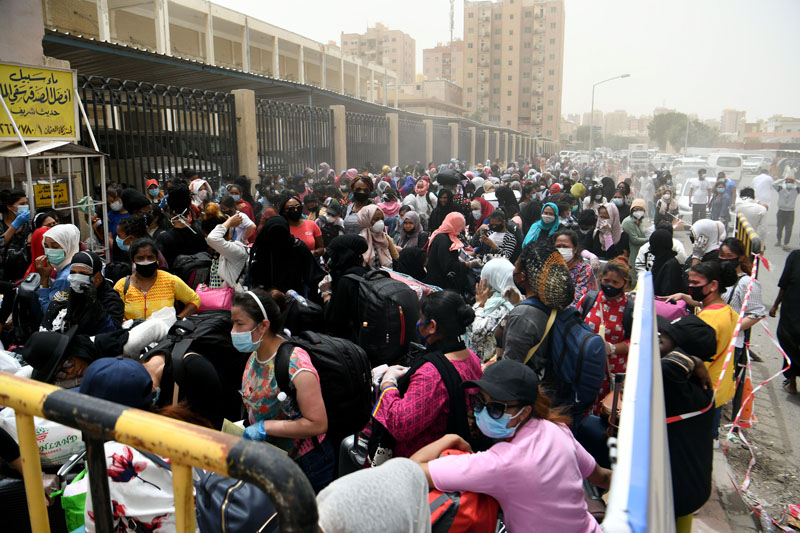By B Izzak
KUWAIT: Kuwait Society for Human Rights (KSHR), an independent body, said in a report yesterday that as many as 253,000 residents left the country between June 2020 and June 2021 due to the economic situation resulting from the coronavirus pandemic. Citing official figures, the society said around 205,000 workers from the private sector and their family members, 41,200 domestic workers and around 7,000 employees from the public sector left the country.
It also said the number of expats and Kuwait's total population dropped in the first half of 2021 for the second year in a row, adding that in 2020, Kuwait's population dropped 2.2 percent for the first time in 30 years. Until June 30 this year, Kuwait's population declined 0.9 percent to 4.62 million, mainly because the number of residents dropped by 1.8 percent, the report said.
As a result, the percentage of expats in Kuwait has fallen to 68.2 percent from 70 percent of the population just over a year ago. The report said that there were 1.93 million workers in the country until June 30 this year, 420,000 of whom are Kuwaitis, or 21.7 percent of the total. In addition, there are 639,000 domestic workers, divided evenly between males and females.
Only 90,000 expats are employed in the government sector, making up just 20 percent of the total government workforce of 437,100. The rest are Kuwaitis, the report said. Kuwaitis working in the private sector reached 73,000, making up merely 4.8 percent of the total workforce in the private sector of 1.51 million.
Indians top both workers in the private sector and the domestic help sector. As of June 30, there were 302,000 Indian domestic helpers, followed by the Philippines with 138,000 and Sri Lanka with 80,000. The society cited a report by the Public Authority for Manpower and published in the local press as saying that 71 percent of residents who left drew monthly salaries of between less than KD 60 and KD 359.
The society called in its report on authorities to find a solution for expats who lost their residence permits because they could not return to Kuwait due to restrictions. It also called for abolishing the kafala or sponsorship system and replacing it with another system that protects the rights of all parties. It also called for abolishing the so-called administrative deportation, under which police can deport expats without a court order.




